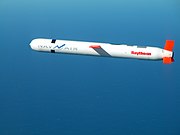Home of the Militant Middle, Another Opinion ("A/O") is an Independent oriented "OpEd" blog for those looking for unbiased facts free of partisan drama and who are willing to question the Status Quo.
Sunday, September 02, 2018
Getting More Bucks for the Bang: America's Top Military Contractors
As you all may recall from my last article, America's 25+ year war has resulted in a severe shortage of munitions and spare parts, which are critical to maintain our "bombing for Democracy". In several cases, the US military is down to a single provider for certain parts or chemical ingredients. This got me to thinking about just who are major military contractors. Given that the Industrial-Military complex, of which we've been repeatedly warned, is not just a multi-billion business, but a key player in determining our foreign policy (and whose lobbyist even help write the bills legislators will vote on and whose money plays as serious factor in funding their campaigns), I thought I'd like to take a look at the major players.
Tops on the list is Lockheed Martin, which is known for its missile systems and fighters such as the F-35 Lighting II. They are currently working on a $528 million dollar interceptor missile system called "THAAD", which stands for Terminal High Altitude Area Defense missile system which is to be used as a "shield" from short and middle range ballistic missile attacks. Lockheed Martin currently has 66,353 contracts awarded totaling $29.4 billion dollars. Lockheed makes a vast array of other military hardware including the F-22 Raptor, C-130 Hercules, F-16 Falcon, P-3 Orion, F-117 Nighhawk, and the AC-130W Stinger.
Coming in second is Boeing, which not only produces commercial passenger planes but military aircraft such as the EA-18G "Growler" which provides tactical electronic jamming designed to interfere with enemy communications and various electronic equipment. That contract is valued at $897.5 million dollars. Boeing has 12,645 contracts totaling $14.6 billion dollars. Boeing also make the C-17 Globemaster III, KC-135 Stratotanker, E-3 AWACS surveillance aircraft, drones, and various types of satellites.
Third on the list is Raytheon Company. Raytheon produces precision munitions, including the 464 Excalibur extended range projectiles; a $31.8 million dollar contract. The Excalibur is reputed to be longest range and most accurate cannon fired projectile in the world. Good for reaching out and touching those special "someone's". They also produce other systems like the TOW, Patriot Missile, AMRAAM, HAARP, Tomahawk Cruise missile, and AIM 9x Sidewinder. Raytheon has 10,000 contracts worth $12.3 billion dollars.
Forth is General Dynamics, which has been one of those long time military contractor going back decades to World War I. General Dynamics has 20,822 military contracts worth $11.8 billion dollars. They are currently working on $664.3 million contract to produce an additional DDG-51 Class Destroyer for the US Navy, which is described as a "all steel, gas turbine ship equipped with a AEGIS combat system, Vertical Launching System, an advanced anti-submarine warfare system, two embarked SH-60 helicopters, advanced anti-aircraft missiles, satellites, and Tomahawk anti-ship/anti-land attack missiles. Sounds like a lot of "bang" for the bucks doesn't it? In addition, General Dynamics is known for the M-1 Abrams Main Battle Tank, Stryker, Buffalo, Cougar, and Ajax armored fighting vehicles. Of course, there's the ever handy GAU-19/B .50 caliber Gatling gun and the Hydra 70 unguided missile systems, the M2/M2-A1 heavy machine gun, and the MK19/MK47 grenade launcher which are good for keeping those pesky neighbors on their side of the fence.
Fifth on the Top 10 list of leading military contractors is Northrop Grumman which has produced some of America's most famous aircraft like the Stealth Fight and Stealth Bomber. The company has been tasked with producing a new generation long range stealth bombers to replace the Air Force's aging fleet of bombers. The contract is worth $55 billion dollars. The company currently has 10,397 contracts totaling $9.5 billion dollars. They also manufacture the A-10 Thunderbolt II or as it's better known, the "Warthog", the E-2D Advance Hawkeye surveillance aircraft, the B-2 Stealth Bomber, F-18 Super Hornet, and the F-35 Lighting II.
Sixth is United Technologies, with 24,626 contracts valued at $6.6 billion dollars. The company is working on a $1.04 billion contract to produce a new generation of engines for the F-35 multipurpose fighter jet through its subsidiary, Pratt & Whitney. They also produce everything for ejection seats to highly sensitive surveillance systems for drones as well as defense satellites, sensors, and controls.
Coming in at seventh is L3 Communications which produces various type of optic equipment for the military. With 7,622 contracts worth $5 billion, the company has reputed to be having trouble with it optical systems functioning in extreme weather conditions. In 2001, the Pentagon awarded EOTech, a subsidiary of L3 Communications, a contract of $24 million dollars for a holographic optical system. However, the program was plagued with problems, which were divulged until 2013. As a result, L3 Communications was forced to settled the matter with the Pentagon for $25.6 million. In a world where you're only as good as your last success, this doesn't bode well for L3 Communications.
In eight place is BAE System, a British company, which produces the M109A7 Self-propelled howitzer and M992A3 ammo carrier for the US Army and Marines Corp. A $245.3 million contract will upgrade the Paladin chassis system. As a bonus, it includes a "high voltage" gun drive and projectile ramming system for rapid hands-off loading. BAE Systems has 10,133 contracts worth $4.2 billion dollars. BAE also manufactures the MK-38 Mod-3 machine gun system for ships, the 40MK Naval Gun, and the 57MM Naval Gun, as well various control systems.
In ninth place comes something of a surprise, Humana, Inc. The Louisville, Kentucky based company provides healthcare for active duty, veterans, and their families through the TRICARE Health System. Humana has 206 contracts valued at $3.5 billion dollars. Other healthcare providers include Health Net, Inc, Merck & Company Inc, Cardinal Health Inc, Pfizer Inc, GlaxoSmithKline Inc, United Healthcare Group, and McKesson Corporation.
Finally, in tenth place is Bechtel Corporation with 201 contracts worth $4.6 billion dollars. Bechtel is a engineering, procurement, construction, and project management company; in fact, it is the largest American construction company and the eighth largest private corporation in the US. The company manages the majority of the US nuclear and national security related sites. Some of the sites it manages are the Hoover Dam, Los Alamos/Lawrence Livermore National Laboratory, San Francisco's BART or Bay Area Rapid Transport subway system, the Watts Bar Nuclear Generating Station, the Tacoma Narrows Bridge, and Hanford Waste Treatment and Immobilization Plant. They also manage key nuclear and transportation sites in places like Kuwait (Kuwaiti Oil Field Restoration), Saudi Arabia (Jubal Industrial City, the UK (the Chunnel and the high speed rail system), and the Chernobyl Nuclear Power plant Stabilization Project.
Of course, these are just the top ten defense contractors and doesn't include companies like Hewlett-Packard, Honeywell, Hughes Corporation, Huntington Ingalls Industries, General Electric, Harris Corporation, General Atomics, or companies like Leidos which is a scientific, engineering and biological research company or the various pharmaceutical, laboratory, and technical research companies and universities . It also doesn't it touch the internationally based corporations which do business with the Pentagon such as Leonardo (UK), Thales Group (France), Airbus (EU), or Mitsubishi Heavy Industries (Japan).
I also have to point out that various lists have several of these companies ranked higher or lower, as well as adding some while not including others. These are based on current contracts and the needs of the military at a given time plus approval of the Pentagon's "wish list" for assorted projects. I've included some of the lists below in the references in case you want to compare rankings.
Nevertheless, the "military-industrial complex" is huge; practically no area of economy is not affected in one fashion or another. It includes information technology, medical, genetic and biological research, all specialties of engineering (but especially chemical, robotics and aerospace), computer science, psychology, and even (perhaps especially) academia. America, at present, is engaged in some form of conflict in approximately 75 countries either directly or indirectly with no sign of slowing down. If we were to actually run out of bombs or missiles (which is highly unlikely), we'd no doubt start dropping sacks of rocks! Face it, we're all tied to the war machine in one way or another.
Meanwhile, there are approximately 553,000 homeless people living in America with 186,000 being families; just over 40,000 of those are veterans, and some 95,000 individuals who are classified as "chronically" homeless (many of these suffer from some form of mental illness and/or addiction). Many of these individuals work, but simply don't earn enough to afford either an apartment or house due to the nature of their work while others simply don't qualify for any kind of aid for various reasons.
While the number of those in poverty has fallen over the last two years, there are still 40.6 million American living in poverty, which includes 13.3 million children according to the Marguerite Casey Foundation, with the overall poverty rate standing at 12.7%. 4.6 million seniors (65 and older) currently live in poverty (by the way, I'm specifically not separating by race because in my opinion, poverty is poverty regardless of skin color).
According to the association, Farmers & Hunters Feeding the Poor, 1 in 8 Americans struggle with having enough to eat; many are forced to choose between paying their bills--rent, heat, medical--or buying food. In 2016, 41% of major cities saw an increase in requests for emergency food assistance. Of that figure, 63% were families. 51% were currently employed, and 18% were elderly while 8% were homeless. In fact, the US has one of the highest poverty rate of any industrial nations in the world (we are ranked 29th out of 31 industrial countries according to the Organization for Economic Cooperation and Development (OECD).
While this may offend some (too bad), there should be no excuse whatsoever for people going hungry in this country, especially children, the elderly, and handicapped. None. We export tons of food to other countries, and what doesn't go overseas often gets destroyed. There should never be a reason for unintentional homelessness in this country, particularly among our most vulnerable, I am especially irritated that we fail to take care of our veterans as well as we should, and instead spend billions on illegal immigrants and nations overseas ( we spend approximately $130 billion on illegal immigration and Trump signed off for $55.9 billion in foreign aid in the 2018 budget, which also includes money to help prop up various governments).
In June 2018, the US Senate voted to approved a budget of $716 billion dollars for the Pentagon, with an eye toward the $1 billion mark within the next few years. That's 17% of the entire US budget. It also represents a $82 billion dollar increase over its 2017 budget and despite that fact that we're nearing a $1 trillion dollar deficit. Meanwhile the Department of Health and Human Services will see its budget cut by 33%; HUD by 13% and the Department of Education by 14%. The Small Business Administration's cut is 5% but Labor Department's is 21%. The EPA will see a 31% cut in its budget. Something about that just doesn't seem right.
The US doles out billions of dollars to defense contractors in order to fund our never-ending "War on Terror", which often creates more enemies than we had before! Plus we shouldn't forget the "enemies" our intelligence agencies have manufactured for us either, usually to help overthrow some government that won't cooperate with the corporate puppet masters, the Oligarchy, which seems to control just about everything. Couldn't we drop a few thousand less bombs or build a few dozen less bombers, tanks, or war ships and spend it on those who could really use a helping hand up in this country?
Perhaps instead of trying to bomb whole populations back to the Stone Age (which is redundant since most are only a few steps removed to begin with), we should focus on building more schools, agricultural systems like proper farming and irrigation techniques; in short, teaching people how to be more self reliant. We should teach them basic healthcare techniques (such birth control and disease prevention), and let them decide what type of government they want. It seems that by helping people improve their lives (not doing it for them), the US could help build more friendly neighbors and spend less money on bombs. Who knows, perhaps the money we save could be used to improve our quality of life here at home.
The Top 9 biggest defense contractors in America
America's 15 biggest defense contractors
Top 100 Contractors of the U.S. federal government
List of defense contractors
Subscribe to:
Post Comments (Atom)





No comments:
Post a Comment